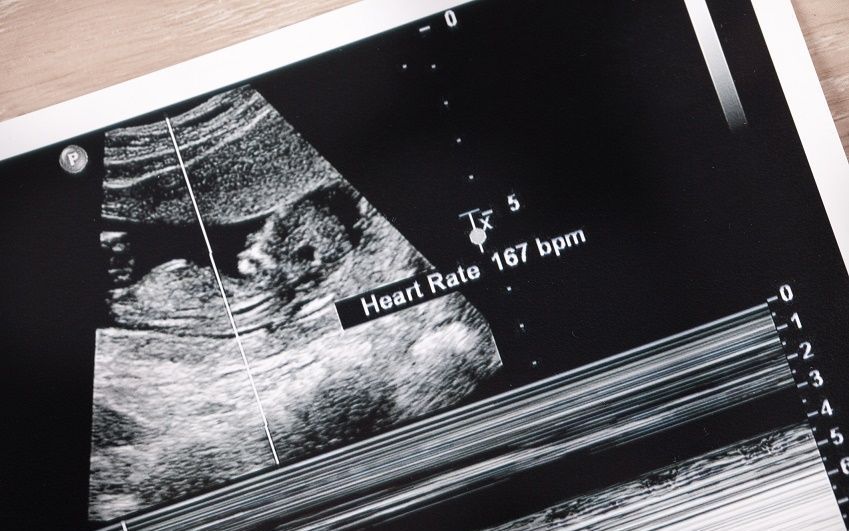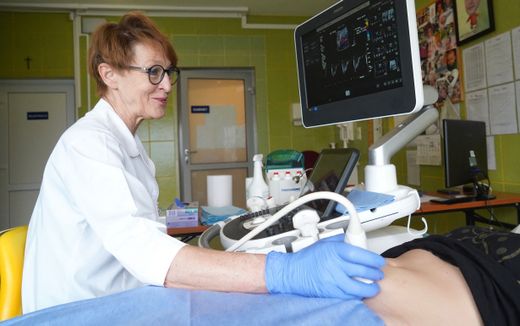Italy’s parliament considers heartbeat law

Ultrasound. Photo iStock
Southern Europe
Italy may require pregnant women to listen to their unborn baby's heartbeat before an abortion.
Italian pro-life groups want to see the approval of a “foetal heartbeat law”. If it passes, it would be the second EU state to do so. Hungary passed their own “foetal heartbeat law” in 2022.
As for now, Draft law 194, known as Un cuore che batte (a beating heart) is set to be discussed by the Italy’s Justice and Social Affairs Commissions, according a recent report from Avenire.
Italian pro-life group, Pro-Vita e Famigilia (Pro-life and Family) collected around 106,000 signatures for the legislation to be considered in parliament. Many other family-based groups across the country also helped in getting the required number of signatures. Their efforts resulted in more than the minimum (50,000) required for a referendum, as reported by Euronews.
Freedom of thought
Pro-Vita e Famigilia (Pro-life and Family) sent the proposal to parliament last year and it has remained there since then. According to a recent report in the HuffPost, the debate in its passage remains ongoing.
“On ethical issues there is enough freedom of thought. No decision has been taken on the matter. We will see during the discussion, when the proposal will be scheduled,” said Massimiliano Panizzut in the HuffPost. Panizzut is the leader of the League group in the Social Affairs Commission.
Legal capacity
Meanwhile, other proposals besides “a beating heart” have been placed on parliament’s table. A bill by the group, Forza Italia discusses the “recognition of legal capacity at the moment of conception.” Another one by the Lega group talks about the “conceived child” being regarded as a “family member” in all circumstances.
Under Italy’s existing law, which was passed in 1978, women are allowed to terminate a pregnancy for the first 90 days. Exceptions may be granted in cases when the unborn baby has congenital problems or if it poses a danger to the mother’s health.
Funding
Although Italy’s “beating heart” law may be stuck in parliament, its pro-life groups continue to be criticised by the media. They are especially critical of the fact that some Italian pro-life groups can trace their origins to the American anti-abortion movement. One of the largest pro-life organisations, Movimento per la Vita (“Movement for Life”), has connections to the US-based Heartbeat International and has received much of its funding from there. Heartbeat International has several locations in the US and has over 3,300 affiliated pregnancy crisis centres worldwide. Movement for Life has also received almost 93,000 Euros in funding from its parent organisation since 2014, according to the Euronews report.
Even before “a beating heart” was brought before parliament, Italy’s medical facilities have made an about face in its pro-abortion stance. According to a report from Politico, officials responsible for healthcare funding have allowed more pro-life organisations within their hospitals and family-planning clinics. For women who ditched their abortion plans, some local governments handed out cash rewards in return. Approximately seven out of ten Italian gynaecologists nationwide have declined performing abortions, with the highest being from Sicily. The church also enjoys a strong relationship with community health officials. Most of the church’s funds are now going toward Catholic-based health institutions that do not perform abortions, Politico also reported.
Precedent
Italy is not the only EU country to consider a “heartbeat law”. Two years ago, Hungary passed its own law on requiring women to listen to a foetal heartbeat before getting an abortion.
“Nearly two-thirds of Hungarians associate the beginning of a child’s life with the first heartbeat,” Hungary’s Interior Ministry said, who was quoted in The Guardian.
When Hungary’s prime minister, Viktor Orbán, came to power in 2010, he sought to prioritise family-based policies in the country. The country’s “foetal heartbeat law” set a precedent in anti-abortion reform since the abortion was first legalised in 1992, according to The Guardian report. Under the current law, abortions may be carried out for pregnancies up to 12 weeks. It can also be approved at any time when foetal development is deemed not viable.
Despite Hungary’s successful passage of its “foetal heartbeat law,” Italy continues to weigh its options. Jacopo Coghe, national spokesman from Pro-Vita e Famigilia (Pro-life and Family) remains optimistic that more than one proposal is being considered.
“Since the approval of the law on abortion, we have been told that the abortion in the womb is a clump of cells, but if this is really the case, why do we want to prevent women from seeing it and hearing its heartbeat by claiming that it is a violent act? Showing a clump of cells does not constitute violence,” he told the HuffPost.
Related Articles









